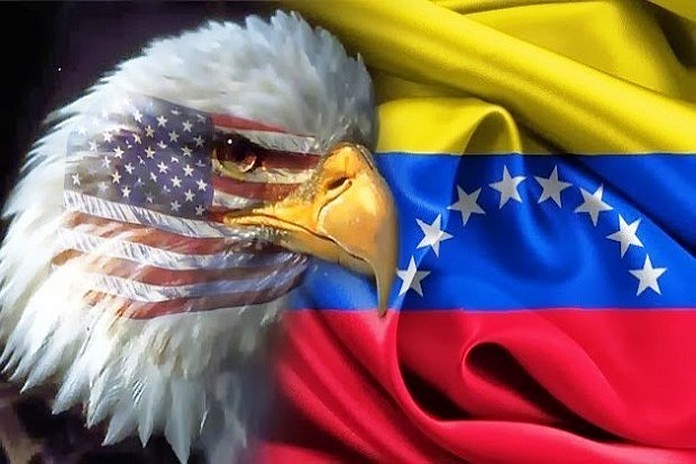
The United States is at it AGAIN!!
The current social unrest in Venezuela aided and abetted by the United States is not the first time, and undoubtedly not the last time, it will interfere in the domestic affairs of other countries. On December 22, 2016, Ari Shapiro, the NPR Host of All Things Considered, had this to say regarding one country attempting to influence the election results of another country: “The U.S. has done it, too, by one expert’s count, more than 80 times worldwide between 1946 and 2000.”
If election interference is not successful, military intervention is not ruled out. The recent presidential election in Venezuela is no exception to the United States’ role in influencing political outcomes in foreign countries.
On July 28, 2024, the people of Venezuela went to the polls to elect a new government under the leadership of Nicolás Maduro. According to the National Electoral Council there were 21,392,466 people eligible to vote in the elections, consisting of 10 candidates.
Despite this fact, the real contest was between the ruling Socialist Party led by incumbent Venezuelan President Maduro and Edmundo González of the U.S.-backed main opposition group whose spokesperson and real leader is discredited Maria Corina Machado. Machado was disqualified earlier in the year for engaging in disruptive and insurrectionist activities against the State of Venezuela; the Venezuelan Supreme Court later upheld her disqualification.
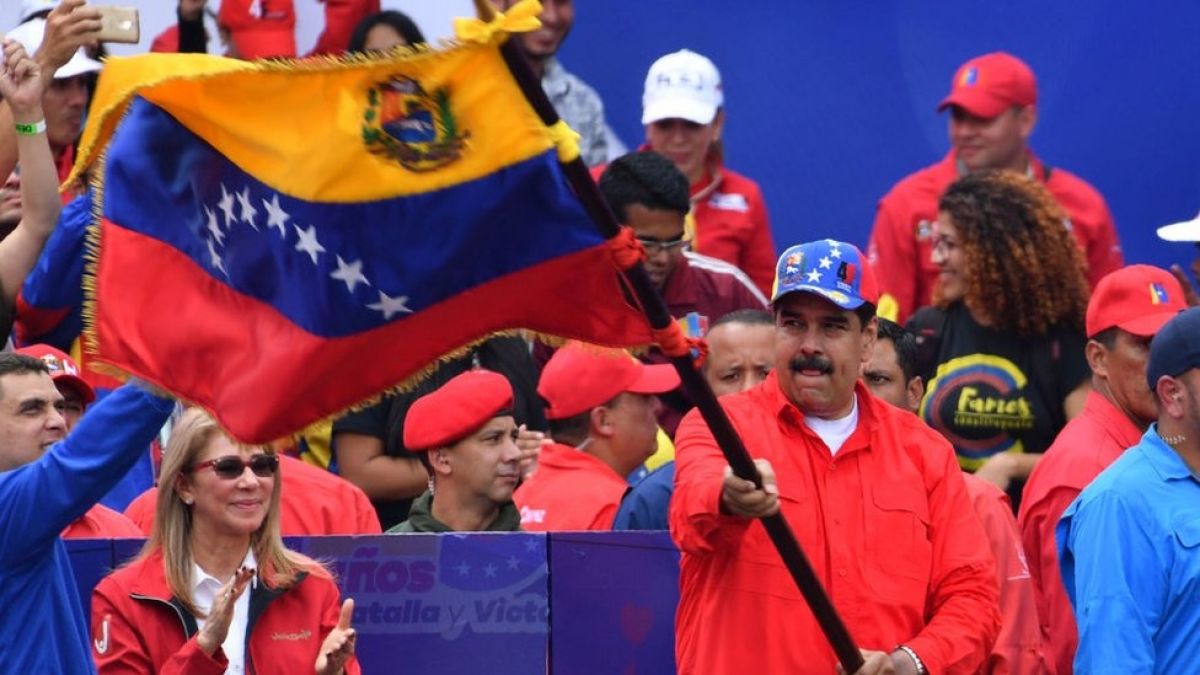
The Opposition Aided by Washington Reacts to the Election Results
With a reported 59% voter turnout and international observers from 65 countries, President Maduro received 51.2% of the votes compared to González’s 44.2%. These election results clearly indicate that the people of Venezuela have, electorally, declared their support for the Socialist Party and its commitment to carrying on the “Bolivarian Revolution” as initiated by the late President, Commander Hugo Chávez. This mandate, however, has been violently opposed by the leading opposition group and their benefactors in Washington.
Almost immediately after the announcement of the election results, the far-right opposition led by Maria Corina Machado and her puppet “figurehead” Edmundo González refused to accept the results, which not even the international observers disputed.
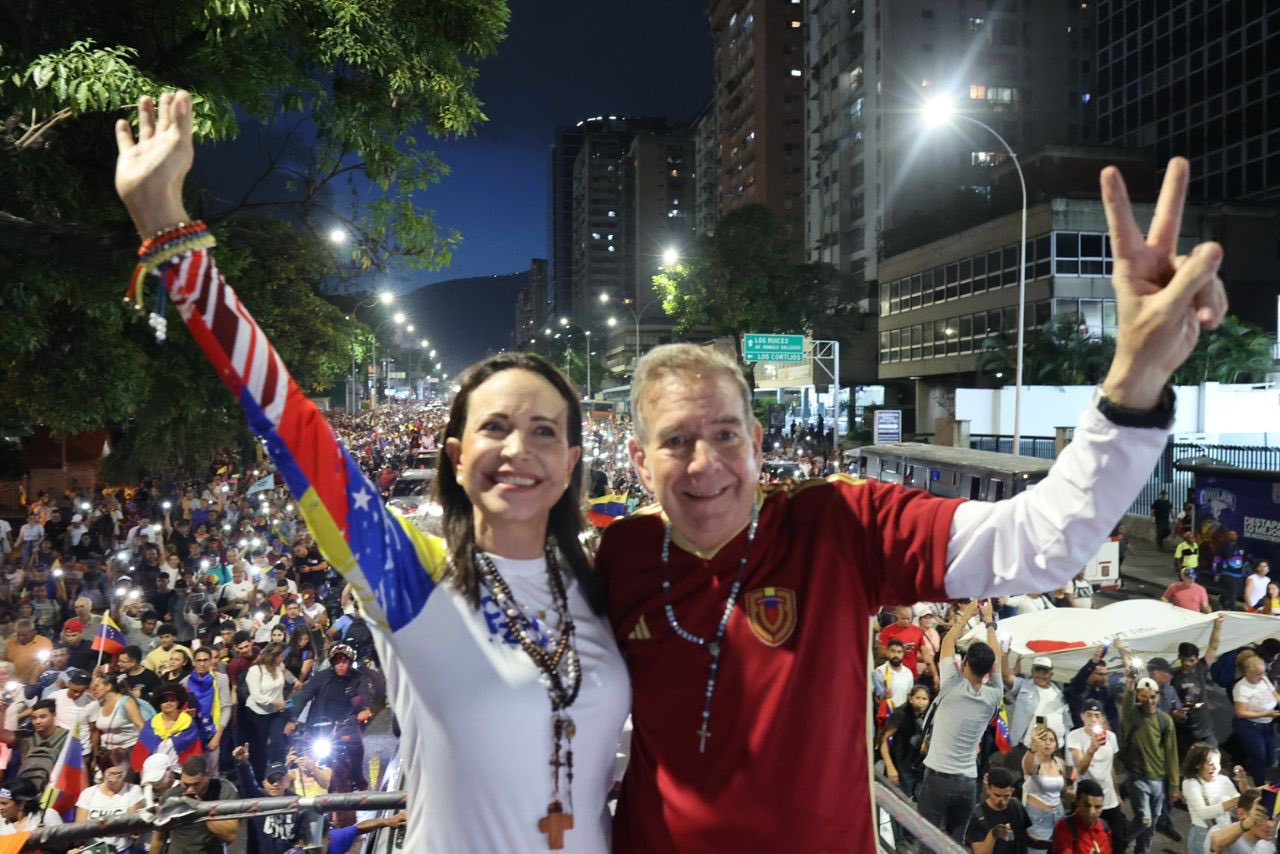
Machado and González’s supporters took to the streets and launched a campaign of violence and chaos across the country: Streets were barricaded; tires set on fire, blocking major roads; statues of Hugo Chávez destroyed; and transportation interrupted between Caracas and the main airport in La Guairá.
On Monday afternoon—the day after the election—the violent mob attempted to enter the Presidential Palace in Miraflores but were stopped by police. Two more attempts were made to advance on the Presidential Palace, including clashes with the National Guard, but again were stopped by police.
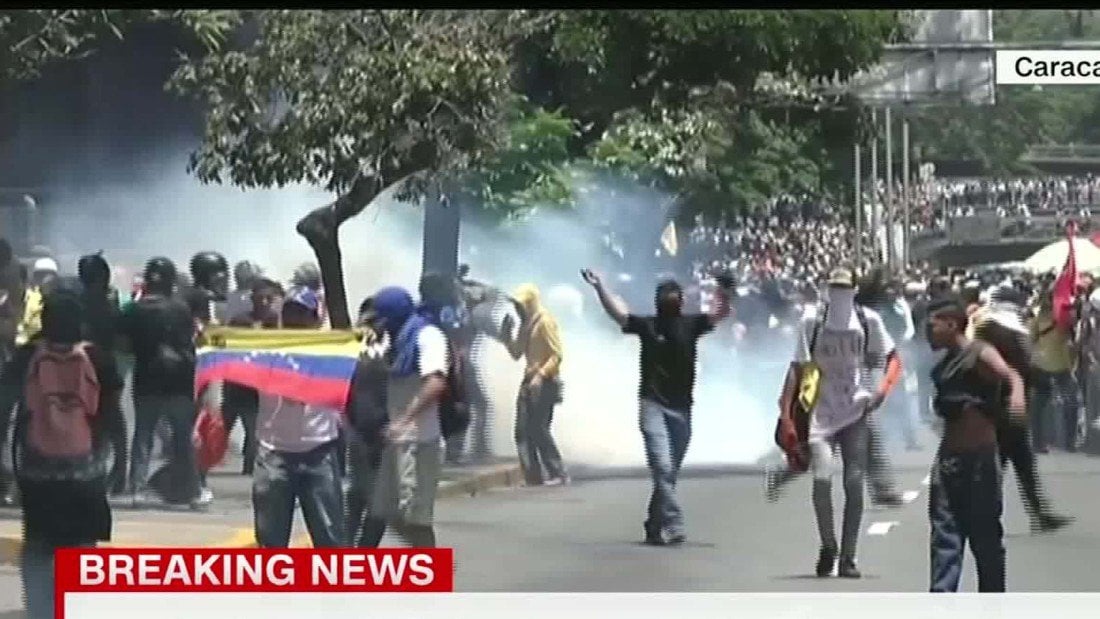
On July 29, the National Lawyers Guild praised the “fairness, and transparency of the Venezuelan election process” and condemned “the role of the U.S. in undermining the democratic process….The delegation observed a transparent, fair voting process with scrupulous attention to legitimacy, access to the polls, and pluralism. Their successful outcome is a triumph for the Venezuelan people,” reads the press release.
This election aftermath is just the most recent in a string of actions taken by United States imperialism and its agents in Venezuela, to thwart the will of the Venezuelan people, destroy the building of an egalitarian society started by late President Hugo Chávez and ultimately return the country to the will of capital and the local oligarchs.
The United States, through its Secretary of State Antony Blinken, commented on August 1st that, “given overwhelming evidence, it is clear to the United States and, most importantly, to the Venezuelan people that Edmundo González Urrutia won the most votes in Venezuela’s July 28 presidential election.”
As usual, the United States make these claims without providing one shred of evidence; it is in keeping with their intent to shape public opinion in favor of the “empire”; they have done it to Cuba, Nicaragua, Russia, Iran, and any country they do not like. The real reason behind this is the long-standing venom they have against Venezuela and the socio-economic path it chose to take.
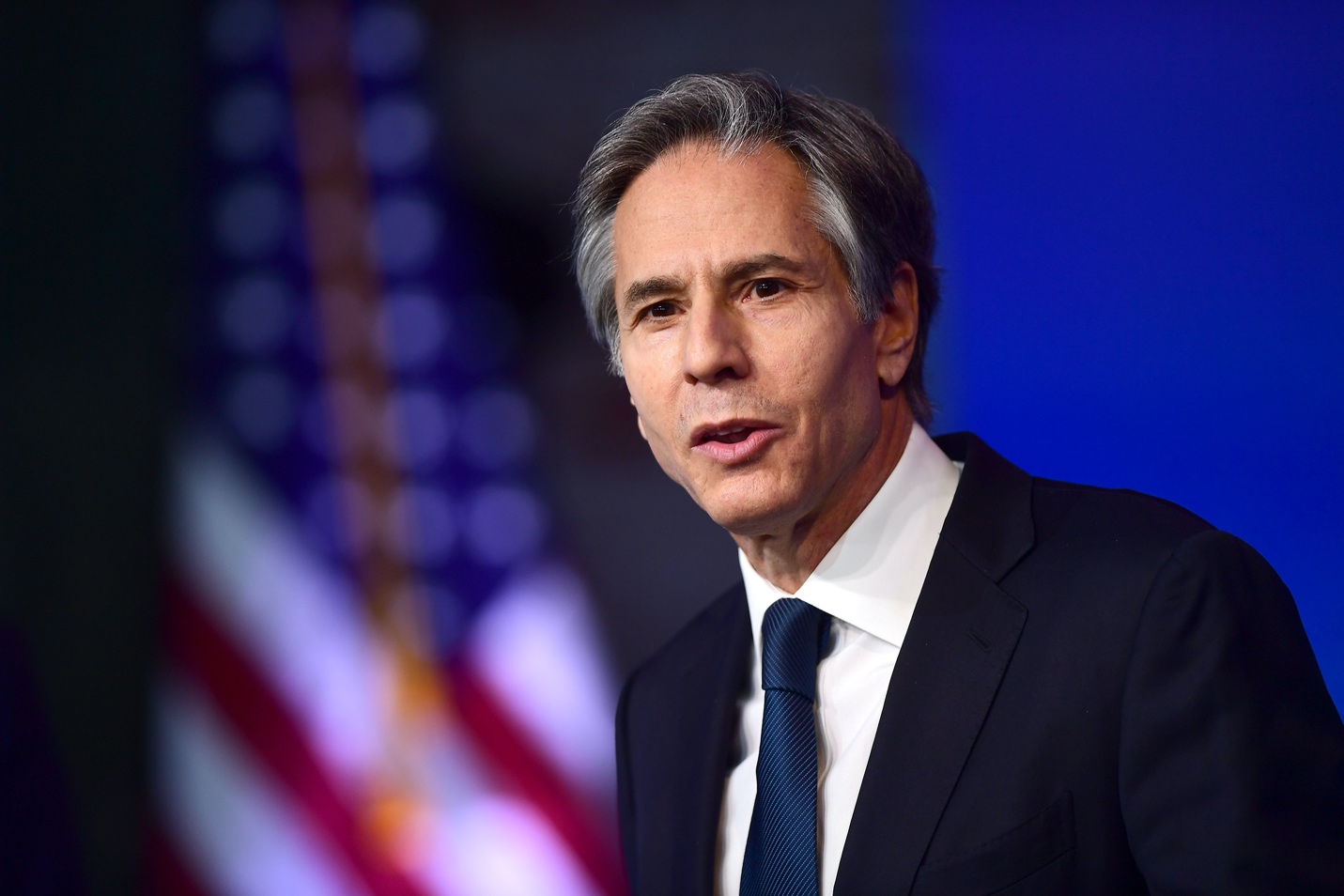
Why the United States Hates Maduro and the Bolivarian Process
The “feud” between Venezuela and the United States goes back especially to the 1990s, the period when the entire political character of Venezuela changed.
Prior to that, the U.S. was able to exert leverage over Venezuela’s leaders to ensure that private U.S. corporations—including notably those owned by the Rockefeller family—controlled the country’s oil industry.
By the 1990s, however, the traditional Venezuelan political parties had lost credibility with the masses: inept leadership, widespread corruption, and their support for oppressive socio-economic measures that further worsened the social conditions of the masses.
Fast forward to the campaigning and ascendancy to power of the late President Hugo Chávez in 1998. Chávez’s presidency heralded a new and progressive era for the Venezuelan people.
With Chávez, working class involvement in the national political process increased; community groups organized their own neighborhood security where police failed; and indigenous groups became more visible, including recognition of their cultural practices.
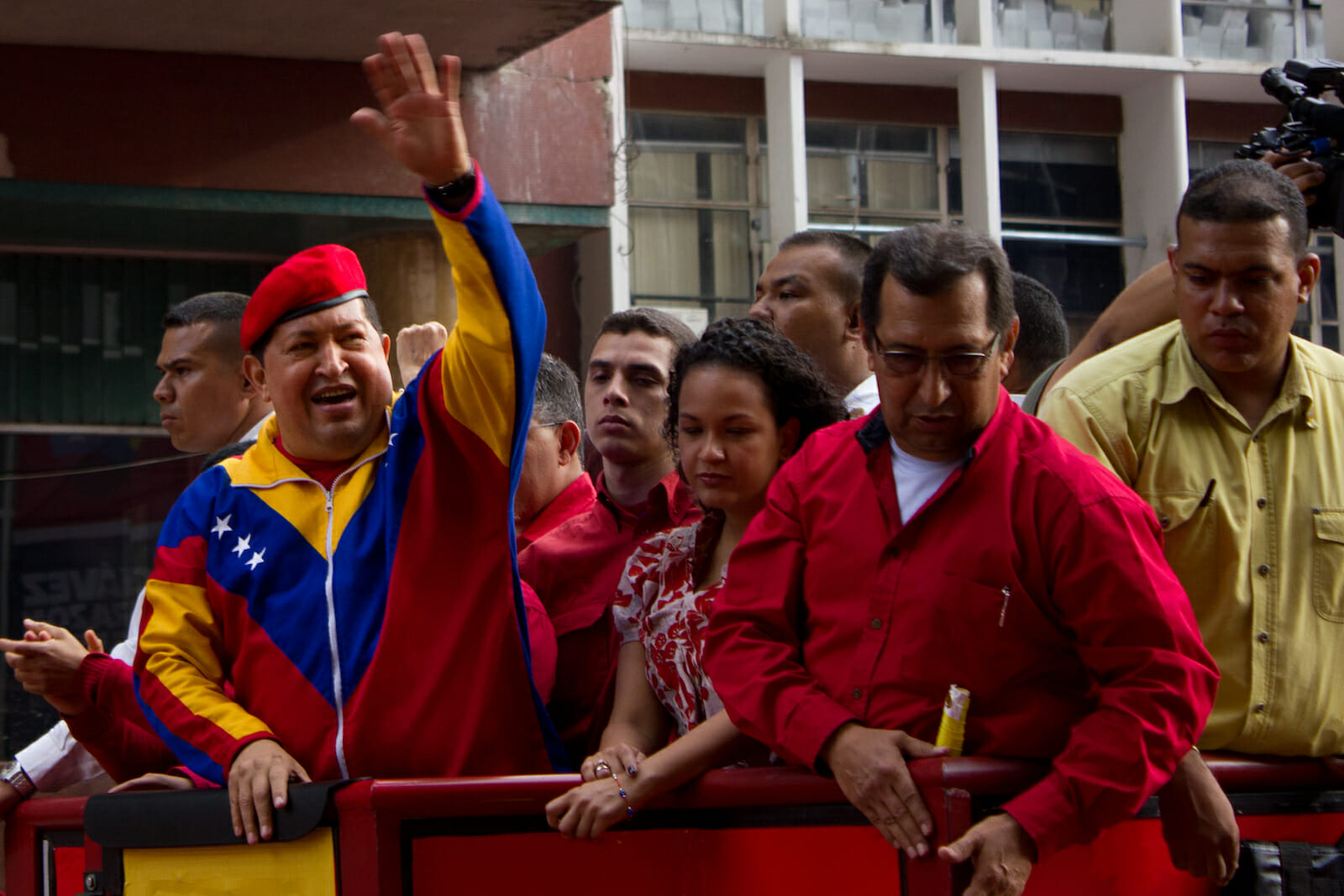
The most impactful transformation of the society was the constitutional reform initiated by Chávez. This reform resulted in greater working-class democracy, including the inclusion of previously marginalized sections of the society, presidential term limits and, most importantly, a recall provision of elected officials.
In foreign relations, the new constitution promoted a multipolar world and encouraged hemispheric integration.
The most poignant aspect of the constitutional reform was that the country would refuse to be party to any international agreement that recognized the authority of a “superior” judicial body to resolve disputes. This would include treaties with international lending institutions like the International Monetary Fund (IMF) and the World Bank.
Finally, ultimately, it is the question of oil.
Early in Chávez’s presidency oil was selling at $8 a barrel, the lowest it had been in years. From 2001 and 2002 Venezuela became the leader of the Organization of the Petroleum Exporting Countries (OPEC); during that time Chávez visited all ten of the OPEC member countries, in an effort to seek collaboration to increase the price of oil.
The United States response to this was that Chávez was associating with “terrorists”; Chávez’s visit resulted in an invitation by him to all the member states to visit Venezuela for the summit to be held in Caracas, Venezuela. Chávez’s ideological outlook and commitment to social justice, encouraged Venezuela to lobby for OPEC to adopt a socially conscious attitude to the plight of developing countries. The result of this is reflected in the communique from the meeting.
In practice, this social consciousness was translated into Venezuela setting up PetroCaribe, which was an agreement between Venezuela and Caribbean member states to provide petroleum products on a concessionary basis, to aid in economic cooperation and to assist in the development of social programs in member states. The “offshoot” of this program was Citgo, the U.S. arm of Venezuela’s state-owned oil company, Citgo Petroleum.
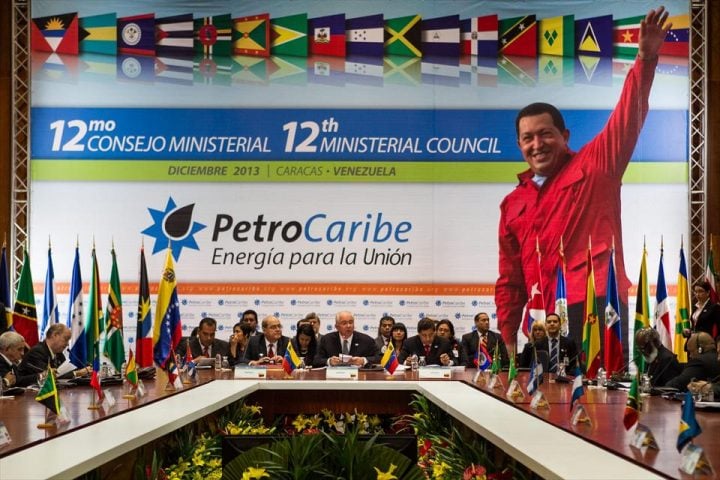
In December 2007 Citgo delivered oil for poor homeowners in Boston and New York’s South Bronx; this program was the third year of Venezuela providing heating oil assistance to poor people. As Alejandro Granado, president of Citgo Petroleum, said: “This is a gift coming from the heart of the Venezuelan people to the heart of the American people.” Further, the chairman of For a Better Bronx, Vicente Alba, said: “We can’t get $1 for anything from an American oil company, let alone for heating oil.”
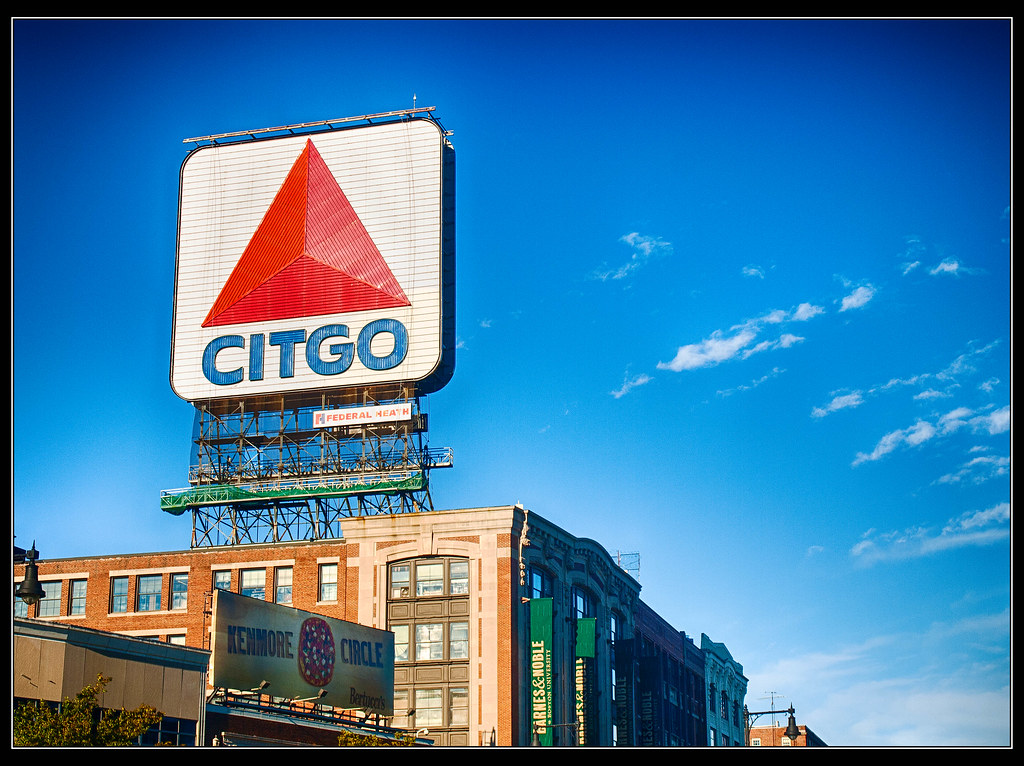
Another significant reason why the United States and it allies are adamant in attempting to delegitimize the results of the presidential election is not just to thwart the Bolivarian process, but ultimately to kill the building of socialism in Venezuela through the Communes. The Communes are self-organized community cooperatives, formed by the citizens of the respective region. They engage in varied economic development projects, including food production and distribution; pharmaceuticals; education; housing; and a women’s center, among others. The surplus derived from the Communes’ economic endeavors is what is used to provide these social programs.
Today the Communes are alive and well in Venezuela and are the backbone of the Bolivarian Revolution initiated by the late President Hugo Chávez.
As punishment for Venezuela exercising its right as a sovereign nation and determining its own path of self-determination, the United States has fomented disruption and encouraged far-right extremists to disrupt, carry out assassination attempts and, when these all failed, the U.S. has unilaterally adopted sanctions against Venezuela to cripple the economy and undermine the government, thereby effecting regime change.
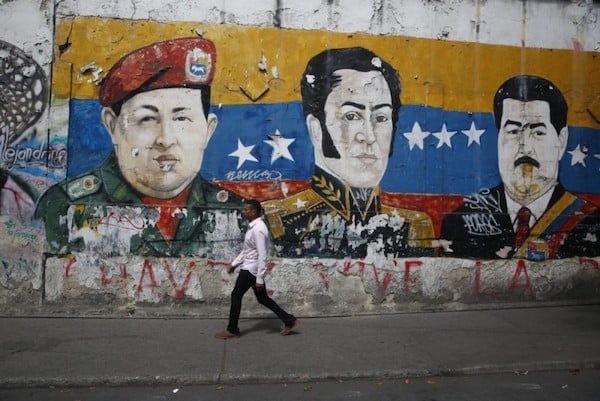
The Venezuelan People Must Strongly Resist Imperialism and Its Agents
The reactionary section of the United States ruling class has never learned from its misadventures and recklessness around the world; whether it is in Iraq, Afghanistan, or Libya, they have created fiasco after fiasco that have left capitalism deeper in crisis, both economically and politically.
The reign of the U.S. dollar as the preferred currency for international trade is seriously threatened by China and Russia; the BRICS organization has been discussing the feasibility of an alternative currency for trading.
The misadventure in encouraging NATO to foment a proxy war between Ukraine and Russia has plunged U.S. finance capital into further crisis.
The United States and the European Union (EU) keep pouring money into an already lost war between Ukraine and Russia. Worst, it has put the EU in a quagmire for securing affordable petroleum products.
By placing sanctions against Russia, Iran and Venezuela, the European countries cannot readily find a source of petroleum products that is easily attainable, affordable, and in the quantities needed.
Buying natural gas from the United States would be costly and not sufficient to support domestic and export needs; like the jazz tune titled “In Walked Bud,” in this instance, in walks Venezuela.
The United States needs Venezuelan oil. The people of Venezuela who support and struggle for peace, working class democracy and progressive social progress, have again spoken; they want to keep and continue to consolidate the Bolivarian process.
They have courageously resisted and defeated attempts by the far-right reactionaries in 2000, 2006, 2014, and the Juan Guaidó fiasco in 2019. Despite the United States and its allies’ intervention, the people of Venezuela will again prevail and save their country from imperialist oppression and fascism.

CovertAction Magazine is made possible by subscriptions, orders and donations from readers like you.
Blow the Whistle on U.S. Imperialism
Click the whistle and donate
When you donate to CovertAction Magazine, you are supporting investigative journalism. Your contributions go directly to supporting the development, production, editing, and dissemination of the Magazine.
CovertAction Magazine does not receive corporate or government sponsorship. Yet, we hold a steadfast commitment to providing compensation for writers, editorial and technical support. Your support helps facilitate this compensation as well as increase the caliber of this work.
Please make a donation by clicking on the donate logo above and enter the amount and your credit or debit card information.
CovertAction Institute, Inc. (CAI) is a 501(c)(3) non-profit organization and your gift is tax-deductible for federal income purposes. CAI’s tax-exempt ID number is 87-2461683.
We sincerely thank you for your support.
Disclaimer: The contents of this article are the sole responsibility of the author(s). CovertAction Institute, Inc. (CAI), including its Board of Directors (BD), Editorial Board (EB), Advisory Board (AB), staff, volunteers and its projects (including CovertAction Magazine) are not responsible for any inaccurate or incorrect statement in this article. This article also does not necessarily represent the views the BD, the EB, the AB, staff, volunteers, or any members of its projects.
Differing viewpoints: CAM publishes articles with differing viewpoints in an effort to nurture vibrant debate and thoughtful critical analysis. Feel free to comment on the articles in the comment section and/or send your letters to the Editors, which we will publish in the Letters column.
Copyrighted Material: This web site may contain copyrighted material the use of which has not always been specifically authorized by the copyright owner. As a not-for-profit charitable organization incorporated in the State of New York, we are making such material available in an effort to advance the understanding of humanity’s problems and hopefully to help find solutions for those problems. We believe this constitutes a ‘fair use’ of any such copyrighted material as provided for in section 107 of the US Copyright Law. You can read more about ‘fair use’ and US Copyright Law at the Legal Information Institute of Cornell Law School.
Republishing: CovertAction Magazine (CAM) grants permission to cross-post CAM articles on not-for-profit community internet sites as long as the source is acknowledged together with a hyperlink to the original CovertAction Magazine article. Also, kindly let us know at info@CovertActionMagazine.com. For publication of CAM articles in print or other forms including commercial internet sites, contact: info@CovertActionMagazine.com.
By using this site, you agree to these terms above.
About the Author
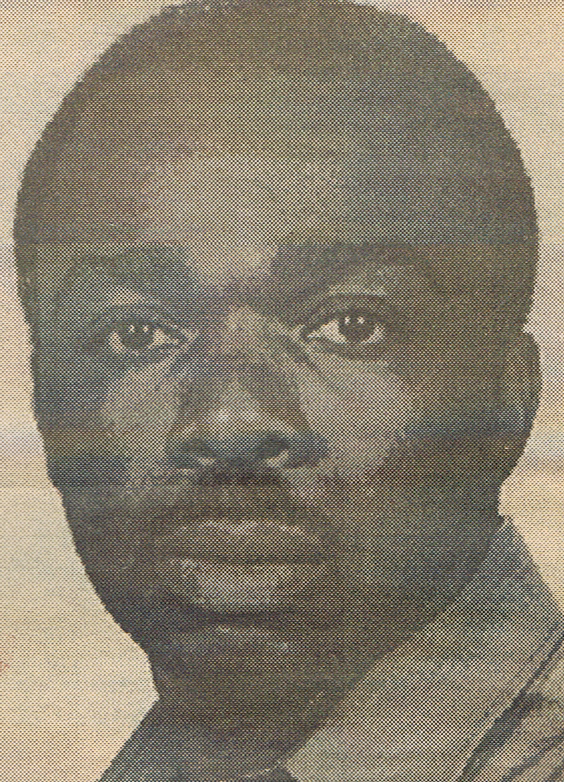
Richard Dunn is a retired construction professional, trained in Architecture and Energy Management.
He’s been a social justice activist since 1968 and was particularly active with the Walter Rodney defense demonstrations.
Richard is an author, a contributing columnist to newspapers, an editor for a music industry magazine and operates a social justice website.
Richard can be reached at: richarddunn75@gmail.com.

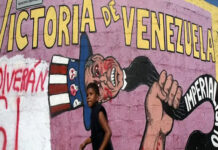

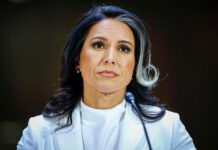
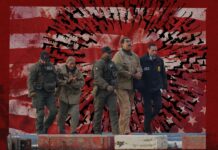
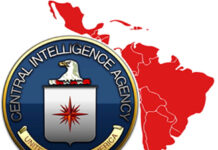
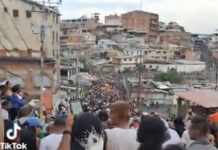
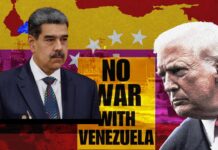



Experts are pointing out that Maduro has 30 days to show everyone the full and complete details of the tally sheets which support his victory. But why postpone until the very last minute.
If I take a blood test and am told that I have 30 days to disclose to the world the results of my blood test I might as well reveal these results immediately. Why wait for spring when you can do it now.
It’s not Maduro. It is the Supreme Court, which is under no obligation to do anything before the 30 days.